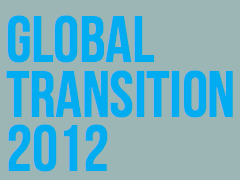The Second Global Transition 2012 Dialogue provided a platform for stakeholders to consider how the transition to a new and green economy can be achieved for each Rio+20 priority area and proposed sustainable development goal.
Participants heard, among other things, presentations on “new and green economy” grassroot initiatives from around the world.
 18 March 2012: The Second Global Transition 2012 Dialogue on the New Economy focused on a number of issues related to the green economy during a weekend event on the sidelines of negotiations for the UN Conference on Sustainable Development (UNCSD, or Rio+20).
18 March 2012: The Second Global Transition 2012 Dialogue on the New Economy focused on a number of issues related to the green economy during a weekend event on the sidelines of negotiations for the UN Conference on Sustainable Development (UNCSD, or Rio+20).
The event was held from 17-18 March 2012 in New York, US. It was co-organized by Stakeholder Forum, the new economics foundation (nef), the New Economics Institute, and the Green Economy Coalition, in collaboration with other international partners, including several UN agencies, such as the UN Institute for Training and Research (UNITAR) and UN CC:Learn.
Participants heard presentations and held discussions on issues including: whether the green economy, in the context of sustainable development and poverty eradication, can really deliver; the importance of principles for a new economy and how they will underpin the transition; and enabling conditions and barriers to change. In addition, roundtable discussions were held on issues related to the green economy, including sustainable consumption and production, energy, green jobs, financial reform, food, cities and water.
Participants also heard presentations on “new and green economy” grassroot initiatives from around the world, including: a map of green economy projects being developed in New York and across the US; the move to have a common economic framework for the Caribbean; national policy initiatives in Barbados and St Lucia on the green economy; Guyana’s low-carbon development strategy; Dominica’s efforts to become an organic island; efforts to strengthen local governance systems to improve the business climate in the Mesoamerican forest sector; the Brazilian dialogues on the green economy; and grassroot initiatives in India. In addition, the Focal Point for the National UN CC:Learn Pilot Project in the Dominican Republic underscored the importance of stakeholders’ participation, and emphasized that education and learning will be key to implementing the proposed green economy principles.
The Global Transition 2012 Dialogue partners also include the UN Development Programme (UNDP), the UN Environment Programme (UNEP), the UN Non-Governmental Liaison Service (UN-NGLS), and the UN Department of Economic and Social Affairs (UNDESA). Other partners include CIVICUS, Centre for Environment and Development, Danish 92 Group, Instituto Vitae Civilis, International Trade Union Confederation, and nrg4SD.
The Third Global Transition 2012 Dialogue on Implementing the Global Transition Roadmap is planned for July 2012. [Report of the Dialogue] [UNITAR Press Release] [UN CC:Learn Press Release]